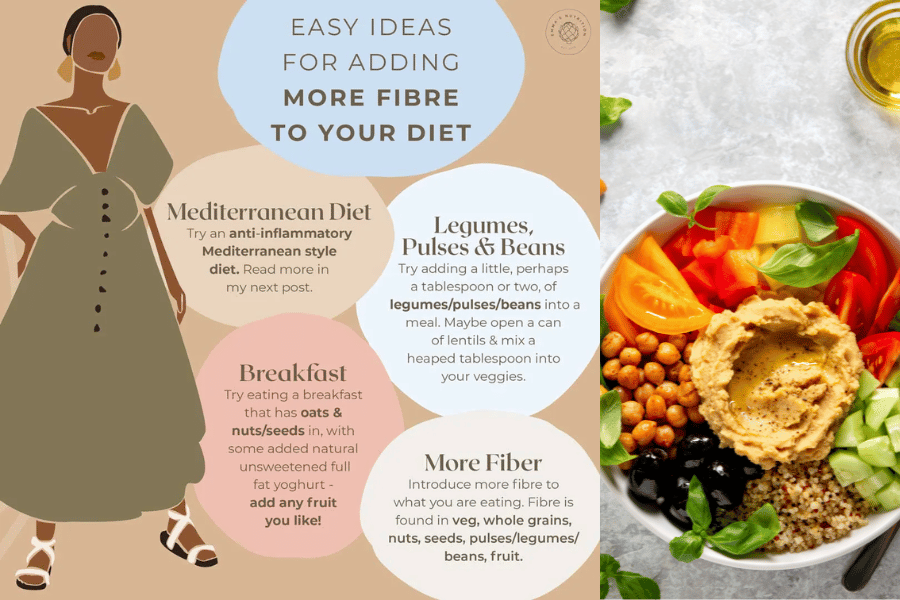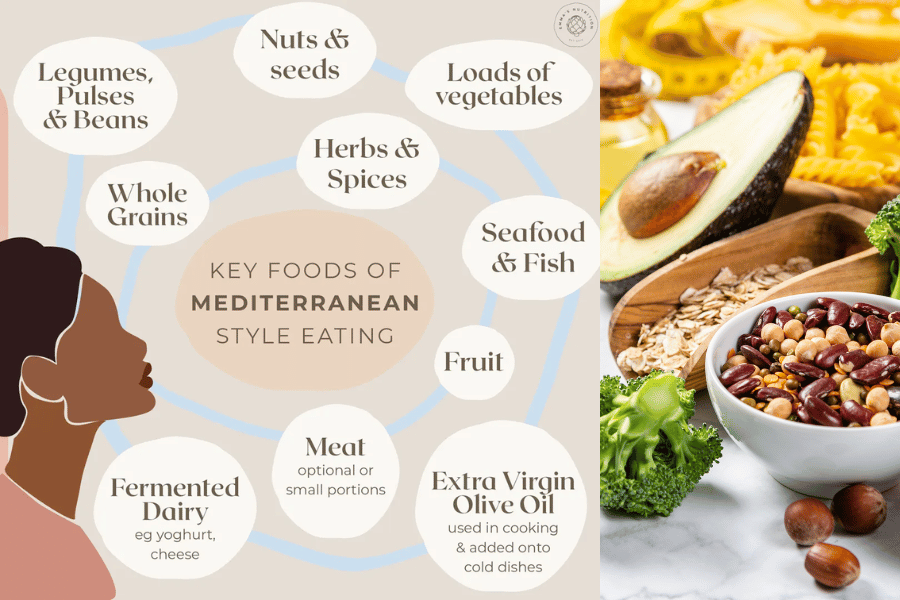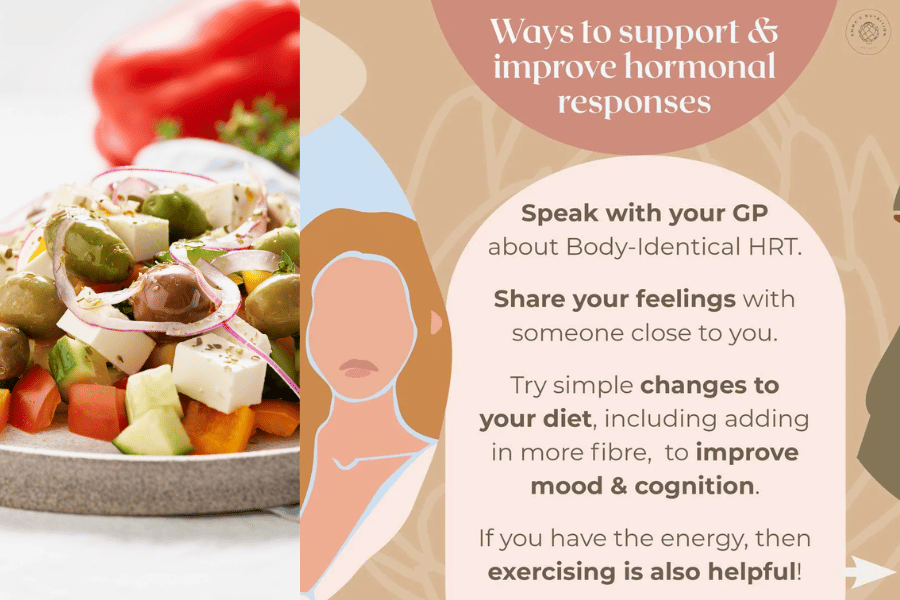Navigating the complex journey of perimenopause can be a challenging feat, especially when it intertwines with the quest for effective weight management. For many women in this transitional phase, the struggle to maintain or achieve a healthy weight intensifies. This is where the significance of a physician-endorsed weight loss plan becomes undeniable.
In this article, we delve into the Mediterranean diet, renowned for its health benefits and sustainability. Its potential as an effective perimenopausal weight loss plan particularly during the festive Yule season, makes it a topic of high relevance and importance. This plan isn’t just about shedding pounds; it’s about embracing a lifestyle change that harmonizes with the unique needs of perimenopausal women.
In the forthcoming sections, we’ll explore the peculiarities of weight loss challenges during perimenopause, the essence of the Mediterranean diet, and practical tips for integrating this diet into your daily routine. With insights from medical experts and tailored advice, this guide aims to empower you to navigate this phase with confidence and health.

Understanding Weight Loss Challenges in Perimenopause
Perimenopause marks a critical transition in a woman’s life, where numerous physiological changes significantly affect metabolism and weight management. This period, often spanning several years before menopause, is characterized by fluctuating hormone levels that can profoundly impact body composition and weight.
One of the key hormonal changes in perimenopause is the decline in estrogen production. This shift can lead to increased fat storage, especially around the abdomen, and a slower metabolism, making weight loss more challenging than in earlier years. Additionally, these hormonal fluctuations can lead to increased appetite and cravings, further complicating efforts to maintain a healthy weight.
Given these unique challenges, a specialized perimenopausal weight loss plan becomes essential. It’s not just about calorie counting; it’s about understanding and responding to the body’s changing needs. Such a plan should accommodate hormonal fluctuations and focus on strategies to enhance metabolism, manage cravings, and support overall health during this transformative phase.
Hence, the importance of a physician-endorsed approach cannot be overstated. Medical guidance ensures that the weight loss plan is safe, effective, and tailored to the specific health needs of perimenopausal women. This comprehensive understanding sets the stage for exploring the Mediterranean diet as a viable and beneficial option for managing weight during perimenopause.

Mediterranean Diet: A Sustainable Approach
What is the Mediterranean Diet and Its Core Components
The Mediterranean Diet is hailed for its balanced and heart-healthy approach, focusing on plant-based foods, whole grains, lean proteins, and healthy fats. This diet emphasizes the consumption of fruits, vegetables, nuts, seeds, legumes, and whole grains. Olive oil is a primary source of fat, replacing unhealthy fats like butter. Fish and poultry are preferred over red meat, and herbs and spices are used for flavoring instead of salt.
Benefits of the Mediterranean Diet for Perimenopausal Weight Management
For perimenopausal women, the Mediterranean diet offers numerous benefits. Its high fiber content, coming from whole grains and vegetables, aids in satiety and helps in managing weight. The inclusion of lean proteins and healthy fats helps balance blood sugar levels, reducing cravings and mood swings often associated with hormonal fluctuations in perimenopause. Additionally, the diet’s rich array of nutrients supports overall health and well-being.
Several studies support its effectiveness. For instance, a study published in the “Journal of Nutrition” found that postmenopausal women following a Mediterranean diet experienced improved weight management and metabolic health compared to those on a standard diet. This underscores the diet’s potential as an effective perimenopausal weight loss plan.
Adapting the Mediterranean Diet for the Yule Season
During Yule, a time traditionally associated with heavy meals and sweets, adapting the Mediterranean diet can be both enjoyable and healthful. Focus on seasonal produce and incorporate traditional Yule flavors like cinnamon and nutmeg into dishes. Opt for roasted vegetables, grilled lean meats, and seafood. Whole grain breads and olive oil dips can replace more calorie-dense options.
The key is to enjoy the holiday season without compromising on health goals. As recommended by the American Heart Association, incorporating the principles of the Mediterranean diet into holiday meals can be a heart-healthy and enjoyable approach for perimenopausal women.
In conclusion, the Mediterranean diet, backed by scientific research and endorsed by health authorities, offers a viable and sustainable weight management solution for women in perimenopause. Its adaptability to different seasons and festivities, like Yule, makes it an attractive choice for those seeking a balanced and enjoyable approach to weight loss.
Related Posts :
- En Ariana Grandes Remarkable 50 Pound Weight Loss In 2024 2 Gixj
- En Months With Lifetime Keto Acv Gummies Sk08
- En Soaking Feet In Apple Cider Vinegar For Weight Loss How 1000 Women Over 40 Found Vlis
- En Ntx Keto Acv Gummies Discover Top Weight Loss Tricks Q4lk
- En Exploring The Benefits For Weight Loss 664j
